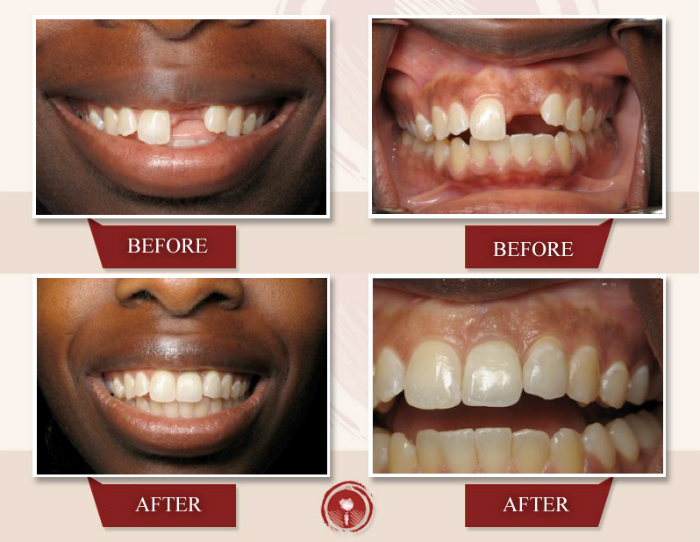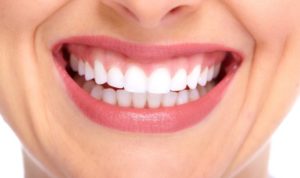Options to Restore Your Tooth
Picture this…A teenager is riding his bicycle downhill at a breakneck speed! Trying to slow down, he hits loose gravel and loses control. As he falls, he hits his face on the handlebar and breaks his front tooth in half. It only hurts when he breathes in… and looks in the mirror.
Losing teeth before they naturally fall out can be very problematic and prohibitive. It can happen due to accidents like the boy had, or due to dental health problems like cavities or decay. Losing teeth at an earlier age in life can create problems later if the tooth is not replaced.
When a tooth is missing, it forms gaps between the teeth. Extra pressure is exerted on the adjacent teeth when others are missing. The increase in pressure on the adjoining teeth can lead to shifting of teeth and can cause misalignment of the natural shape of your teeth. Biting problems can result and along with that jaw issues can also occur. These gaps are also more vulnerable to plaque and bacterial accumulation. Plaque accumulation in these gaps can have negative effects on the adjoining teeth and can cause decay on the adjacent teeth. Decay on any tooth can lead to extensive damage and even further tooth loss.
What is Restorative Dentistry?
Restorative dentistry is the branch of dentistry that deals with restoring broken, missing or decayed teeth. Restoring damaged teeth is extremely important for your overall oral and complete health.
What are the Restorative Dentistry Procedures?
There are five basic dental procedures for restoring and replacing teeth.
Fillings – Dental fillings are the most common kind of restorative procedure for teeth. Cavities in the teeth are removed and then replaced with a natural looking composite resin. Fillings can also be bonded to tooth structure when no decay is present for better cosmetic results.
Crowns – Crowns are custom made restorations made to fit exactly into your bite. They are used when teeth are more badly damaged or have had root canals. They are also used to replace missing teeth after dental implants have been placed. They can be made in the exact shade of your teeth for a natural looking result with porcelain or can be made with gold for a different effect.
Bridges- Dental bridges are custom made restorations that replace one or more missing teeth. They are designed to cap the adjacent teeth and also bridge the gap in between with a natural looking result. They also fit perfectly into your bite and can be made to match the exact shade of your teeth.
Implants- Dental implants restore the root of the missing tooth with the purpose of thereafter restoring the tooth structure. Implants are titanium posts that are set into the jaw as artificial roots. The jaw bone will slowly deteriorate if there is no root attached to it. Titanium is the only metal that is biocompatible with the jaw bone, allowing it to attach to the bone as it heals. A custom crown is then placed over the implant to restore the exact tooth structure and create a natural looking smile again. Implants can also be placed as clasps for custom made appliances or retainers when several teeth are missing.
Dentures- Dentures are artificial removable teeth made to replace a number of missing teeth. There are partial dentures or complete dentures. Complete dentures are made of acrylic and used when all of the upper or lower teeth are missing. Partial dentures are made of acrylic and might also have metal and metal clasps to attach to existing natural teeth when several others are missing.
What Are Some Other Benefits of Restorative Dentistry?

Restorative dentistry also has some other added benefits for your overall dental health.
Conservation of Dental Structure – The most important job of any dental procedure is to repair and retain the natural structure of your teeth. This prevents further damage and minimizes the risk of tooth shifting and bite problems.
Improved Appearance – Having a broken or decayed tooth often inhibits your confidence to smile. Restoring your teeth to a create natural and brighter smile boosts your self esteem and gets you smiling again!
Improved Functioning – When you lose your teeth, it harms the functionality of your entire mouth. Loss of teeth can cause speech impediments and damage your bite. Restorative dentistry ensures that you are biting, chewing and talking naturally.
Improved Oral Health – When you break or lose a tooth, more sensitive layers of the tooth, roots and gum can be exposed. Bacteria can quickly deteriorate the weaker structure and also create gum disease. Gum disease has been medically linked to heart disease, stroke, diabetes and many other conditions as well. Restoring your teeth to their natural structure is beneficial to your entire health and well being.
If you are have any broken, missing, or decayed teeth, call our office to find out what dental procedure can be used to get your oral health and smile back.

